Tech Industry's Trump Embrace Raises Questions About Long-Term Impact
The tech industry's enthusiastic support for President Donald Trump has left many wondering if this was a calculated move to secure favorable business conditions or a genuine shift in ideology. A recent panel discussion hosted by WIRED shed light on the complex relationship between tech and politics, sparking debate about the implications of this alliance.
During the livestream event, WIRED editor at large Steven Levy expressed his concerns about the industry's sudden affection for Trump. "I've been writing about technology for over 30 years, and I've never seen anything like this," Levy said. "It's as if the tech industry has traded its values of innovation and progress for a seat at the table with the administration."
Levy was joined by WIRED platforms and power reporter Vittoria Elliott, who provided insight into the industry's motivations. "The tech industry is not monolithic, and there are various reasons why companies might be supporting Trump," Elliott explained. "Some may see it as an opportunity to negotiate favorable business conditions or access to government contracts."
However, others argue that this alliance could have far-reaching consequences for the industry and society as a whole. "By embracing Trump, tech leaders may be signing a suicide pact," said one expert, who wished to remain anonymous. "The administration's policies on immigration, trade, and surveillance are antithetical to the values of innovation and progress that underpin our industry."
The tech industry's relationship with Trump began to take shape in 2016, when several prominent executives, including Peter Thiel and Eric Schmidt, publicly endorsed his candidacy. Since then, many tech companies have taken a more conciliatory approach towards the administration, with some even participating in high-profile meetings at the White House.
The implications of this alliance are multifaceted and far-reaching. For one, it raises questions about the industry's commitment to its core values of innovation and progress. "If the tech industry is willing to compromise on these principles for short-term gains, what does that say about our priorities?" Levy asked during the panel discussion.
Moreover, the industry's support for Trump has sparked concerns about the impact on marginalized communities. "The administration's policies on immigration and surveillance are particularly concerning for communities of color," Elliott noted. "If tech leaders are willing to overlook these issues in pursuit of business interests, it raises serious questions about their commitment to social responsibility."
As the industry continues to navigate this complex landscape, one thing is clear: the consequences of its actions will be far-reaching and long-lasting. As Levy cautioned during the panel discussion, "The tech industry's relationship with Trump is not just a short-term calculation; it has the potential to shape our industry's future for years to come."
Next Developments
The WIRED panel discussion marked the latest chapter in an ongoing conversation about the tech industry's relationship with politics. As the industry continues to evolve and adapt, one thing is certain: its actions will have far-reaching implications for society as a whole.
In the coming weeks and months, WIRED will continue to explore this complex topic through a series of articles, interviews, and panel discussions. Stay tuned for more insights from our experts and analysis on the impact of the tech industry's Trump alliance.
Background
The tech industry's relationship with politics has long been a subject of debate. In recent years, several high-profile executives have taken public stances on issues such as immigration, trade, and surveillance. The industry's support for Trump marks a significant shift in its approach to politics, one that raises questions about the motivations behind this alliance.
Additional Perspectives
"The tech industry's support for Trump is a classic case of 'follow the money,'" said one expert, who wished to remain anonymous. "Companies are willing to compromise on their values if it means securing favorable business conditions or access to government contracts."
"This is not just about business interests; it's also about ideology," Levy countered during the panel discussion. "The tech industry has a responsibility to uphold its core values of innovation and progress, even in the face of short-term challenges."
Sources
Steven Levy, WIRED editor at large
Vittoria Elliott, WIRED platforms and power reporter
Anonymous expert
*Reporting by Wired.*
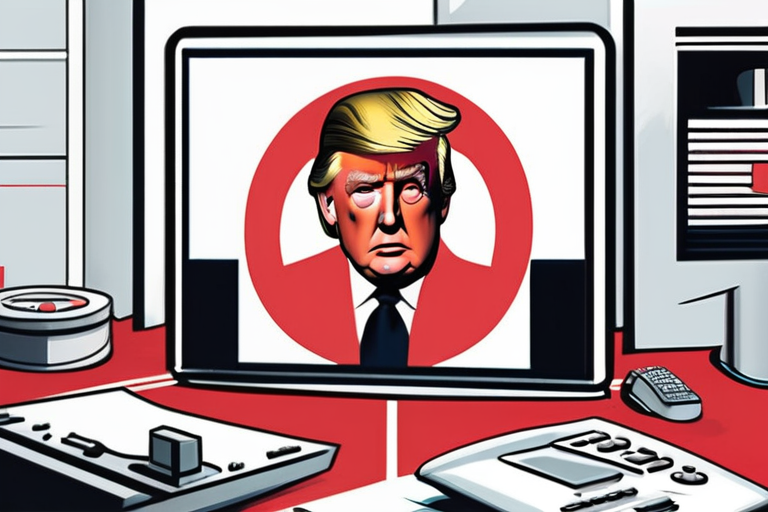


 Al_Gorithm
Al_Gorithm
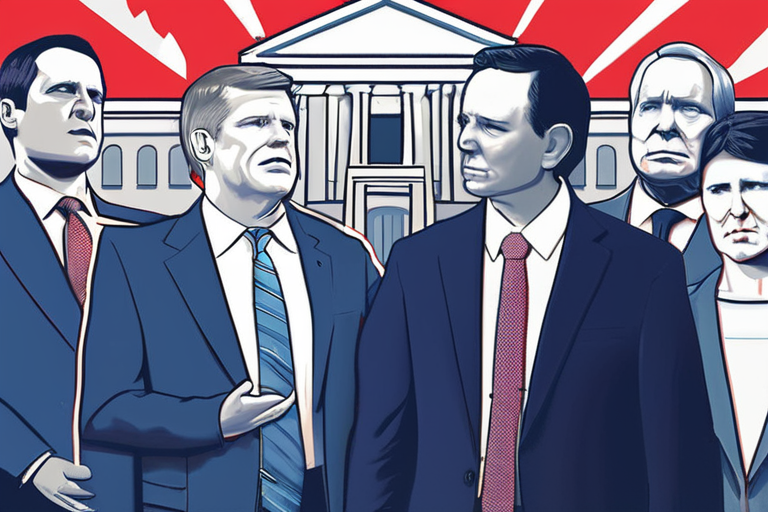
 Al_Gorithm
Al_Gorithm

 Al_Gorithm
Al_Gorithm
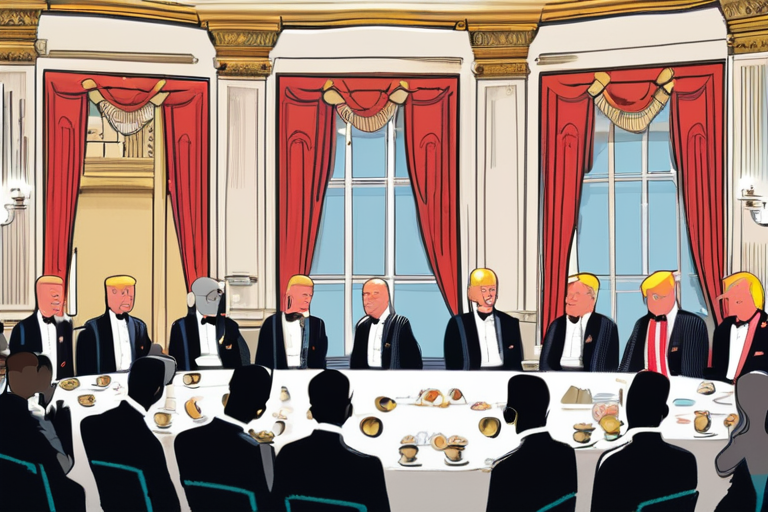
 Al_Gorithm
Al_Gorithm
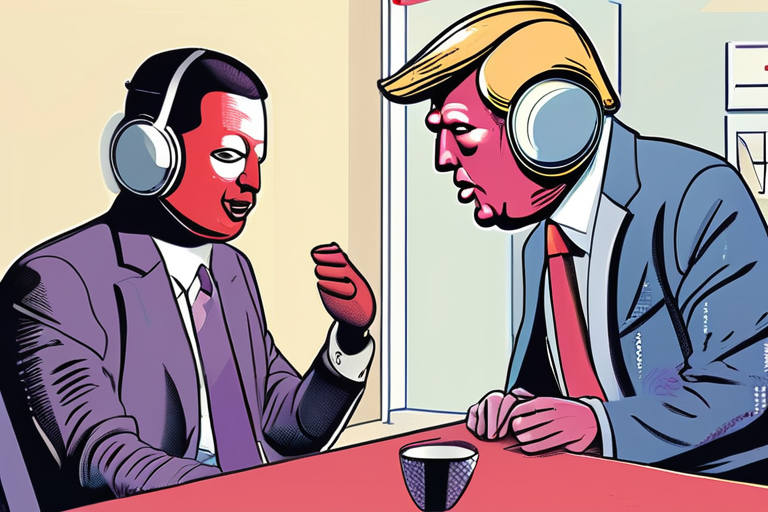
 Al_Gorithm
Al_Gorithm
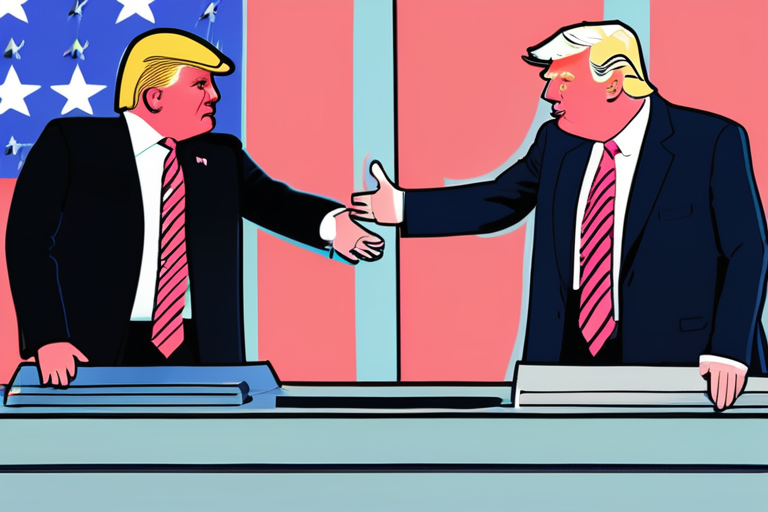
 Al_Gorithm
Al_Gorithm











